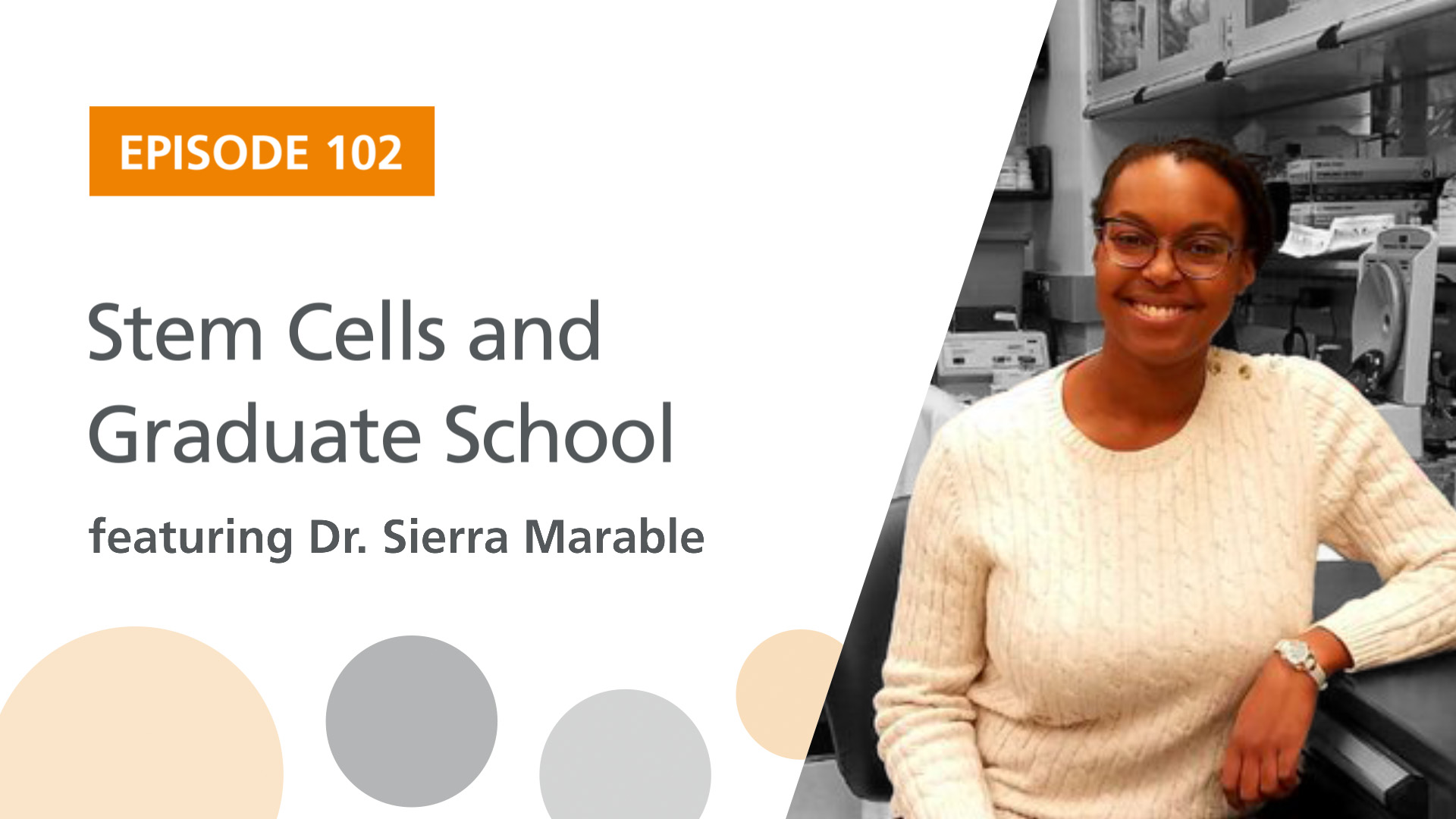
Podcast: Play in new window
Guest
Sierra Marable is a graduate student in the Molecular and Developmental Biology Graduate Program at Cincinnati Children’s Hospital Medical Center. She previously worked at the Post-Baccalaureate Research Education Program (PREP) at the Wake Forest School of Medicine in North Carolina where she became interested in stem cell research while researching induced pluripotent stem cells as a method for modeling development and disease at the Institute for Regenerative Medicine. Sierra joins the show to talk to us about her research and life as a graduate student.
Featured Resource: Neural Stem Cells Wallchart
Resources and Links
Cracking the Body Clock Code Wins Trio a Nobel Prize – Three Americans, Jeffrey C. Hall, Michael Rosbash, and Michael W. Young are recognized and won the Nobel Prize for discovering the cellular gears that drive circadian rhythms.
A Single Mutation in the prM Protein of Zika Virus Contributes to Fetal Microcephaly – A single genetic mutation made the Zika virus far more dangerous by enhancing its ability to kill nerve cells in developing brains.
Bed Bug Aggregation on Dirty Laundry: A Mechanism for Passive Dispersal – In the absence of humans to latch onto, bedbugs (Cimex lectularius) flock to dirty clothing.
Prevalence of Concussion Among US Adolescents and Correlated Factors – Scientists report that about 20 percent of U.S. adolescents have had at least one concussion.
Trispecific Broadly Neutralizing HIV Antibodies Mediate Potent SHIV Protection in Macaques – According to this article, combining the antibodies, called broadly neutralizing antibodies, may stop more strains of HIV than any single one can do alone.
Senate Panel Blocks NIH From Revising Translational Research Awards – The authors report that a congressional spending panel has backed scientists running a $516 million network of bench-to-bedside research centers in their fight with the National Institutes of Health in Bethesda, Maryland, over how it manages the network.
Organoid Cystogenesis Reveals a Critical Role of Microenvironment in Human Polycystic Kidney Disease – By creating and manipulating mini-kidney organoids grown from human stem cells that contain a realistic micro-anatomy, UW Medicine researchers can now track the early stages of polycystic kidney disease.
A Reversible Haploid Mouse Embryonic Stem Cell Biobank Resource for Functional Genomics – Scientists at the Institute of Molecular Biotechnology of the Austrian Academy of Science developed a biobank of revertible, mutant embryonic stem cells.
High-Throughput Microfluidic Labyrinth for the Label-Free Isolation of Circulating Tumor Cells – This article reveals a new chip with a labyrinth design that promises big improvements in detecting rare and aggressive cancer cells in the blood, helping doctors to anticipate tumor growth and plan customized treatments for their patients.
Photo Reference: Courtesy of Sierra Marable

